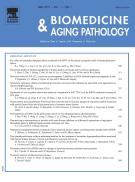The expression receptor of peroxisome proliferator-activated receptor gamma (PPARγ) mRNA in human aorta compared to left ventricle in patients with coronary artery disease without diabetes - 20/12/12
 , Andrzej Tysarowski, Katarzyna Seliga, Janusz A. Siedlecki, Zbigniew Juraszyński, Janina Stępińska
, Andrzej Tysarowski, Katarzyna Seliga, Janusz A. Siedlecki, Zbigniew Juraszyński, Janina StępińskaAbstract |
Aims |
Cardiovascular disease is considered to be the leading cause of death and loss of disability-adjusted lifetime. Peroxisome proliferator-activated receptor gamma (PPARγ), an essential transcriptional mediator is increasingly recognized as a key player in inflammatory cells and in cardiovascular diseases. The aim of this study was to compare for the first time the expression receptor of PPARγ mRNA in human aorta and left ventricles in patients with coronary artery disease without diabetes.
Methods and results |
The tissue samples used in the study come from a cohort of 157 patients with diagnosed coronary artery disease, who were selected for coronary artery bypass graft (CABG). During the surgical intervention, a small slice of the aorta and left ventricle were collected and placed immediately into a solution of “RNA later” and stored until RNA isolation. PPARγ mRNA expression level were measured on the 7500 Fast Real-Time PCR System using a TaqMan® method. The results show that the average expression of PPARγ is almost identical in the aorta and left ventricle with a slightly increasing tendency in the left ventricle (P=0.235). The most significant difference in the level of PPARγ expression between the left ventricle and the aorta did not exceed 0.2 fold in the same patient and 0.4 fold between different patients.
Conclusion |
PPARγ receptor expression in aortic and left ventricular tissue samples of patients with ischemic heart disease without diabetes is similar. It is an interesting study hypothesis to test the effect of PPARγ activators on left ventricular remodeling and heart failure in patients with coronary artery disease undergoing CABG.
El texto completo de este artículo está disponible en PDF.Keywords : Peroxisome proliferator-activated receptor gamma (PPARγ), Aorta, Left ventricle, Cardiovascular disease, Coronary artery bypass graft (CABG)
Esquema
Vol 2 - N° 4
P. 195-197 - octobre 2012 Regresar al númeroBienvenido a EM-consulte, la referencia de los profesionales de la salud.
El acceso al texto completo de este artículo requiere una suscripción.
¿Ya suscrito a @@106933@@ revista ?

